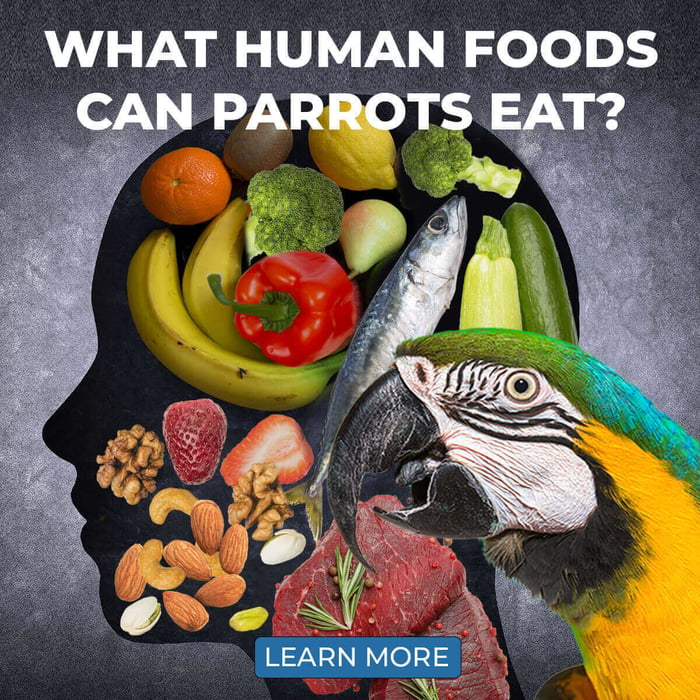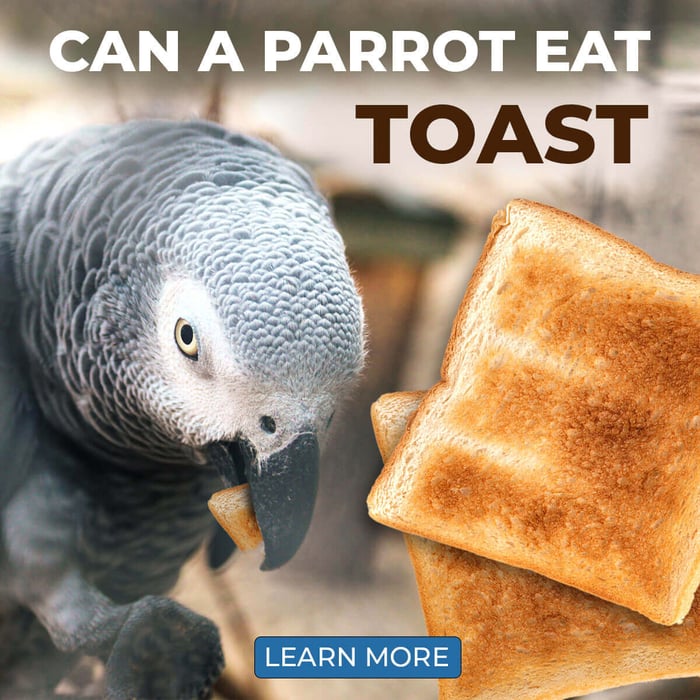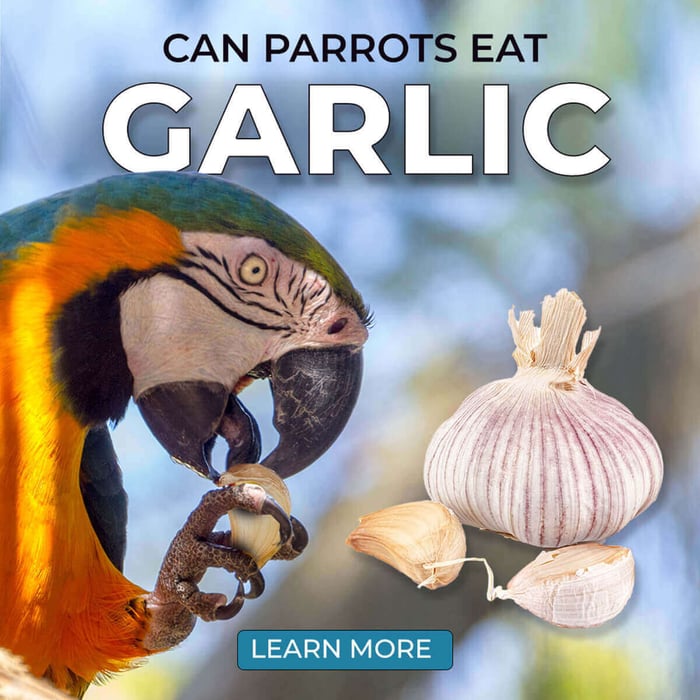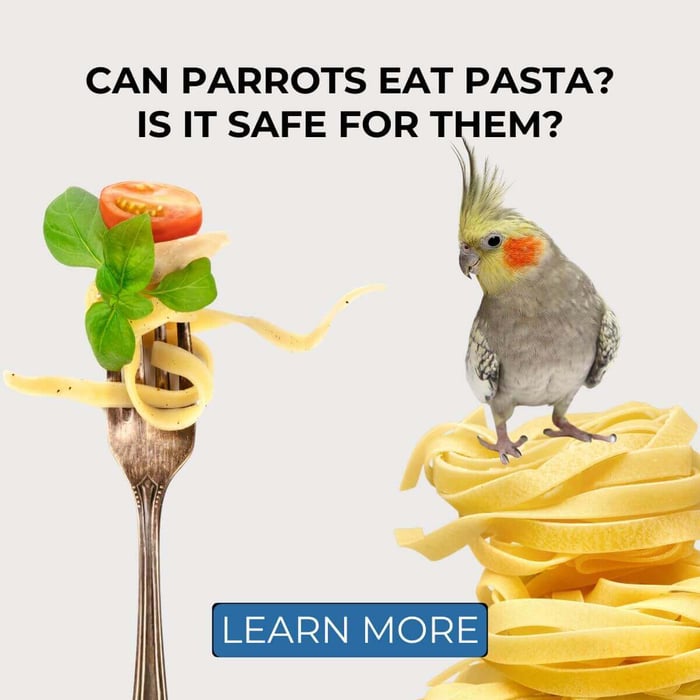Can Parrots Eat Cereal?
Can parrots eat cereal? Parrots are naturally omnivores and can eat a wide variety of foods from both the plant and animal kingdoms. In captivity, you should try to mimic this mixed diet to make sure your feathered friend gets all the nutrients they need. However, these birds do have special dietary needs, which means they can’t just eat anything. Human foods, in particular, are often too high in sugar, fat and salt to serve even as an occasional snack for them.
But what about things like cornflakes, oats, bran flakes and muesli? After all, parrots can and do eat foods like wheat and corn in the wild (often much to farmers’ dismay and annoyance!). The answer is yes, but not all types. Commercial cereals are often loaded with sugar, but there are healthier options for sale.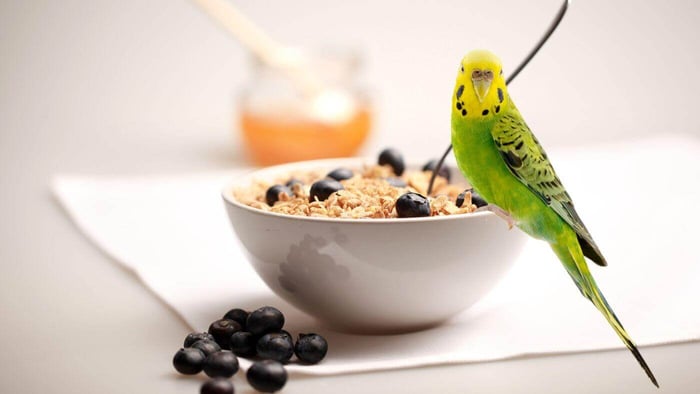
This article discusses what types of cereal your parrot can eat, what cereals you should avoid, and how to ensure that your parrot is getting the proper nutrition for healthy growth, development, and longevity.
Can Parrots Eat Cereal As Part Of Their Diet?
Yes, parrots can eat small amounts of cereal as a treat every now and then. Never on a regular basis unless you make your own cereal at home. They need extra minerals in their diets, which often can be found in cereals. However, not all cereals are suitable for your bird. Some have ingredients that can cause serious health problems if fed regularly.
Cereal can be an excellent choice for parrots because it’s easy to find and doesn’t require complex preparation. Whole grain is also a good source of fibre, which is essential for your pet bird’s digestive health and overall well-being.
Let’s have a look at which cereals you can consider sharing with your parrot.
What Kinds Of Cereal Can A Parrot Eat?
In search of a healthy treat for your pet parrot? Try out low-sugar cereals (or no-sugar, if you can find it!) with whole-grain varieties and zero preservatives. Avoid brands that replace sugar with artificial sweeteners.
Whole grains are more nutritious and contain more healthy fibre than refined grains. This helps keep your bird’s digestive system and gut healthy and problem-free. Whole grains also make your parrot feel full for longer.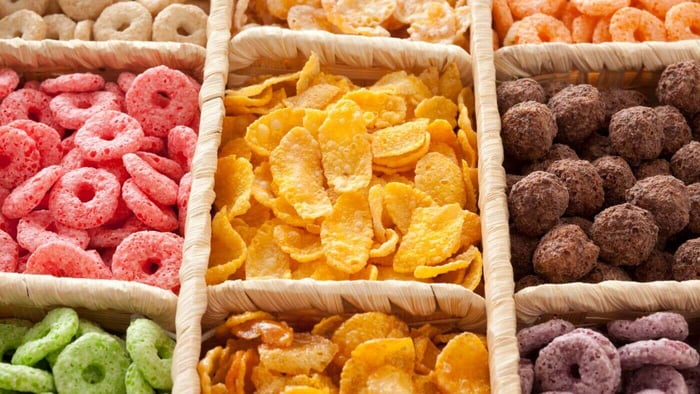
Here are some cereal types to consider:
Can Parrots Eat Muesli?
Muesli can be a healthy choice compared to other types of breakfast cereal. It usually contains different kinds of seeds, nuts, and grains. The seeds are high in protein, calcium, and fibre. Although most brands do have plenty of added sugar, it shouldn’t be impossible to find all-natural muesli that has the characteristics we’re after here:
- Organic
- Natural
- With zero additives
- Multi-grain
- Unsweetened
Try to go for a brand that contains mostly grains since seeds do contain a lot of fat. Raisins and other dried fruit can be pretty high in sugar. Freeze-dried fruits with no added sugar are a relatively good addition to your parrot’s diet.
Also, keep in mind that some mueslis contain milk powder. We do not recommend dairy products for parrots. Always check the labels and read the ingredients to ensure what you buy is healthy and can be given to your bird. Don’t be guided by the image on the packing. They are often misleading and do not represent what is inside the box.
When feeding, make sure you don’t overdo it. This is supposed to be a treat for added variation, not a staple.
Can Parrots Eat Bran Flakes?
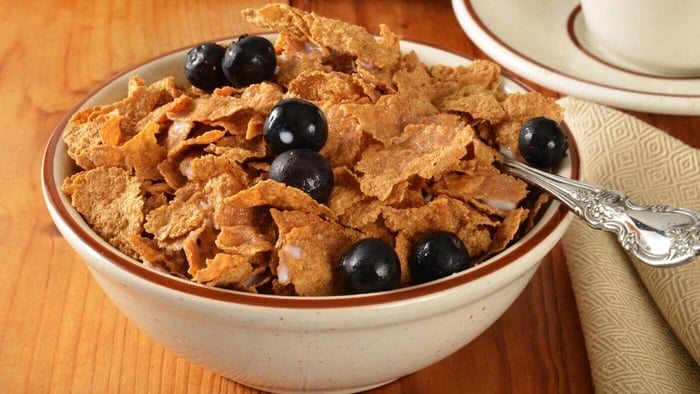
Bran flakes are another potentially nutritious cereal for your parrot. Whole-wheat flakes are fibre-rich and contain some protein and vitamins. These nutrients are essential for parrots’ health and well-being.
Consider choosing a brand without mix-ins like dried fruit or nuts when buying bran flakes. As mentioned, dried fruit can be quite high in sugar. Although your parrots can absolutely have small bits here and there, a bran flake snack would be more wholesome if you mixed in some fresh diced fruit instead.
Here, too, it’s important to check product labels before buying. You’d be surprised how much sugar some brands that market themselves as "healthy" and "natural" actually contain! Choose brands that have/are:
- No added sugar
- Whole-wheat
Can Parrots Eat Oats?
Plain oatmeal is one of the healthiest cereals you could choose for your parrot. Oats are gluten-free whole grain and contain soluble fibre (beta-glucan). The latter helps maintain gut health and prevents constipation.
If you opt for flavoured oatmeal, avoid anything with added sugar. You can feed oats in various different ways:
- Can parrots eat raw oats? Yes. They are a nutritional and cheap cereal for your parrots. You could make it an occasional alternative to your usual staple parrot pellet food. Steel-cut, rolled and flaked are all fine.
- Can parrots eat porridge oatmeal? Also yes. You can soak the cereal overnight in water to serve it as a healthy breakfast or cook it in the morning and feed it lukewarm. Do remember that this can get a little messy. You can refrigerate the leftover porridge for two days, but ensure that you seal the container.
- Can parrots eat oatmeal with dairy milk? No, Parrots cannot eat oatmeal with dairy milk. You should avoid preparing or purchasing oatmeal with dairy milk for your parrot. Parrots find it tough to digest milk oatmeals as they do not have enzymes that help them digest lactose.
As such, consuming dairy products might lead to diarrhoea, making your pet bird weak. Preparing oatmeals for your parrot using sugar-free plant-based milk types like oat, almond, soy, or coconut is fine.
- Can parrots eat flavoured oatmeal? Yes, you can serve flavoured oats to your parrot, but it’s difficult to find brands that don’t contain loads of sugar and ingredients like milk powder. Luckily, you can easily flavour your parrot’s oatmeal yourself, as there are loads of tasty herbs and spices they can eat. A pinch of cinnamon is a good start.
Introducing a blast of tastes to your parrot can help make oats their favourite meal. Unsweetened coconut flakes added to oatmeal can liven up their breakfast. Parrots are also fond of berries: include a handful of cranberries, blackberries, or blueberries for a sweet but healthy treat.
If your parrot has really been a good bird lately, try throwing a small number of sliced nuts into the oats recipe.
What Are The Nutritional Values Of Oatmeal For Parrots?
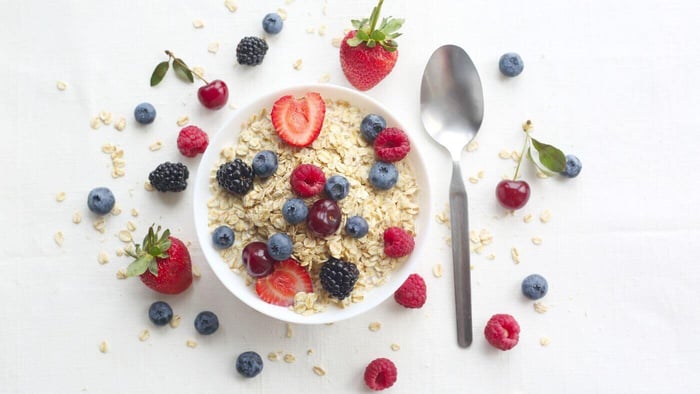
Since oats are an excellent cereal choice for parrots, let’s stick with the topic and find out what’s so great about it.
Basically, oats contain a bunch of different antioxidant compounds that help fight disease-causing free radicals in the body. As a result, it helps slow the degradation of your bird’s tissues, feathers, and organs.
- Avenanthramides and ferulic acid antioxidants. They help inhibit inflammation in the body.
- Oatmeal supplies various different vitamins, including B9, B3, B6, B7 (biotin), and B1 (thiamine). These assist in fighting illness and stimulate cell growth.
- Oatmeal is rich in copper, manganese, potassium, phosphorus, iron, molybdenum, zinc, and calcium.
- Sometimes, parrots munch on scraps and harmful stuff. Molybdenum in oatmeal is vital as it shields them from hazardous toxins.
- There is roughly 1.7g of dietary fibre in every 100 grams of oats. Plenty of fibre keeps your parrot’s digestive system in order.
- Oatmeal is an essential source of protein for your winged pet. It creates solid muscles that help them fly and climb.
Can Parrots Eat Cereal Cornflakes?
Yes, parrots can eat cornflakes, but you should give them in moderation. Remember: even plain cornflakes are higher in fat and (natural) sugars than bran flakes.
Always choose the unfrosted version of cornflakes. They don’t have as many artificial flavours and preservatives. All-natural and organic is the way to go!
Can Parrots Eat Cheerios?
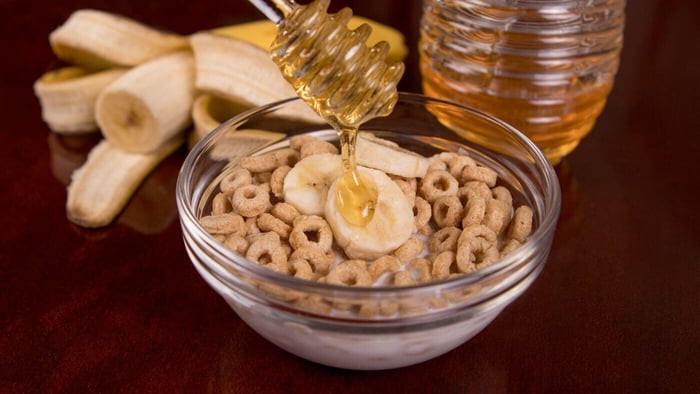
Regular Cheerios are made from wheat, oat and barley flours. They provide rich sources of fibre, calcium, iron, and magnesium to help in digestion and weight management. However… this is still processed food.
A look at the ingredient list for Cheerios UK reveals ingredients like inverted sugar syrup, salt, molasses and caramelized sugar syrup. While a single loop isn’t going to make your feathered pet obese, Cheerios shouldn’t form part of its regular diet or treats.
Can Parrots Eat Honey Nut Cheerios?
This one is mostly for our US-based readers since Honey Nut Cheerios are difficult to find in the UK (although there is a variation available that’s just called Honey Cheerios). In any case… the answer is no.
Honey Nut (and Honey) Cheerios can be a delicious treat, but they’re just not meant for parrots. If you have a parrot that likes to eat cereal, it’s best to avoid giving them this product. The sugar content is through the roof!
Can Parrots Eat Rice Krispies?
Are you catching our drift here? The more refined cereals become, the less suitable they are for parrots. Your parrot might enjoy some Rice Krispie crumbs once in a while. But keep in mind that Rice Krispies contain plenty of refined sugar and artificial flavours. These additives can cause digestive upsets in your pet parrot, as well as obesity.
By the way, some stores may carry plain puffed rice, which is actually fine in itself. The same goes for unflavoured rice cakes, although some brands are a little high in salt.
Can Parrots Eat Lucky Charms?
Here’s another one, mostly for our US readers. And, you guessed it: Lucky Charms are not suitable for parrots. The colours give it away. They are just too high in sugar to be considered healthy, especially in the marshmallow-based "charms". Not to mention artificial colourings!
Even if you do pick out the charms themselves, your parrot would be much better off eating something like plain oats mixed with berries for a snack.
What Cereal Ingredients Should You Avoid?
As we’ve discussed multiple times throughout this post, you should always take a peek at the ingredient list of any product you’re considering buying in order to share with your parrot. An unhealthy diet can wreak havoc on a bird’s life expectancy, after all! So what should you look for when buying cereals for parrots?
Here are some ingredients to avoid when buying cereals for parrots:
Sugar
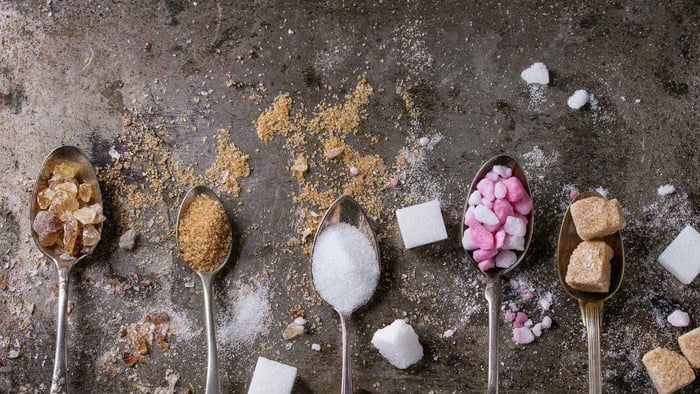
Consuming too much sugar can result in obesity. It can also cause diabetes and other health issues, like increased susceptibility to yeast infections and fatty liver disease.
And remember: sugar isn’t always called sugar. Be sure to also keep an eye out for "hidden" sugars on product labels, like (high-fructose) corn syrup, inverted sugar, fructose syrup, molasses, honey, malted barley extract and more. These have the same effect as sugar and are, therefore, not a good addition to a parrot’s diet.
Synthetic Colours
In the UK, laws prevent the use of many types of synthetic food colourings. The same doesn’t go for the US. As an example, the Lucky Charms discussed earlier still contain them.
Consuming excessive amounts of food dyes can lead to allergic reactions in humans, and it’s not a stretch to think that they would be even more harmful to parrots. Some artificial colourings also contain compounds that cause cancer and have been linked to hyperactivity in children.
Xylitol
Xylitol is a common sweetener included in sugar-free cereal. The component is poisonous to birds, so you should avoid it. In fact, just go ahead and avoid all artificial sweeteners. Bye-bye aspartame, saccharine, acesulfame-K and others!
Conclusion: Can Parrots Eat Cereal?
Cereals can be a healthy and natural option that delivers vital daily nutrients for your parrot. However, you should remember that cereal is not a staple foodstuff for parrots. This especially applies to sugared breakfast cereals; all-natural, plain organic brands are fine to feed on a semi-regular basis.
Obviously, no type of cereal is suitable as a daily parrot staple food. You should go for high-quality pelleted food as your bird’s main daily meal. If you’re still not sure how to put together a suitable meal plan for your bird, don’t forget to have a look at our full post on parrot diet to learn more!

